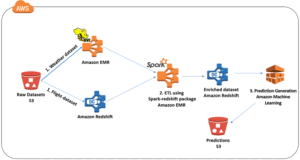
September 12, 2022 – The Affordable Connectivity Program has distributed over $1 million dollars in “improper payments” to service providers due to “fraudulent enrollment practice[s],” according to a report issued Thursday by the Federal Communications Commission’s Office of Inspector General.
Applicants qualify for ACP assistance by demonstrating personal eligibility or the eligibility of another household member, often a dependent. According to ACP guidelines, no such “Benefit Qualifying Person” may be claimed by more than one applying household, and, as of Thursday, each non-tribal household is eligible for no more than $750 of ACP assistance.
Nonetheless, the OIG said it found that some service providers have repeatedly enrolled dozens or even hundreds of households using the information of a single BQP.

“In the most egregious example identified, more than one thousand Oklahoma households were enrolled based on the eligibility of a single BQP, a 4-year-old child who receives Medicaid benefits. The child’s first and last names, date of birth and L4SSN were used over and over again—often several times each day—to complete new ACP enrollment transactions beginning in December 2021.”
The information of another Oklahoman BQP was used on 892 applications, from which two providers collected over $300 thousand in ACP funds, the watchdog said. In Texas, one BQP was used on 997 applications to the tune of $230 thousand. All told, the report found that the information of 12 BQPs was used over 100 times and that “Many more BQPs were used to support dozens of household enrollments.”
FCC Commissioner Brendan Carr said in a statement released Friday that, “For nearly two years now, I have been sounding the alarm on the potential for massive levels of fraud in the federal government’s broadband funding programs,” he said. “Whatever we are doing to deter this type of fraud is not working.”
In November, the watchdog also found evidence of fraud committed on the Emergency Broadband Benefit, a program intended to extend connectivity to students outside of school. Examples included schools enrolling many more households than students.

Biden celebrates Intel’s new fabrication plant
President Joe Biden took a victory lap Friday at the groundbreaking ceremony for Intel’s new $20 billion semiconductor facility in Ohio.
“This is about our economic security. It’s about our national security. It’s about good paying union jobs you can raise a family on,” Biden said. Intel estimates that the project will create 7,000 construction jobs and 3,000 “long-term positions in manufacturing and engineering.”
Biden’s CHIPS and Science Act, which became law in August, allocated $52.7 billion for domestic semiconductor research, development, manufacturing, and workforce development. Proponents touted the bill’s incentives for domestic chip manufacturing as a national security imperative as well as a domestic manufacturing booster.
“Semiconductors are the brains behind the technology that powers our digital age. These chips are critical to the foundations of the U.S. economy, national security and technology leadership,” said Intel’s press release on Friday.
Intel isn’t the only company investing in semiconductor plants: Micron announced a $15 billion new manufacturing plant – or “fab” – in Boise, Idaho, earlier this month and on Monday broke ground. Wolfspeed announced Friday a $5 billion investment in a fab in Chatham, North Carolina.
CoSN calls for updated cybersecurity regulations
In a joint statement on Monday, the Consortium for School Networking urged the FCC to “modernize” cybersecurity regulations in the wake of a Labor Day cyberattack on the Los Angeles Unified School District.
Cybercriminal syndicate Vice Society reportedly claimed credit for the ransomware attack and said it stole sensitive data, but neither assertion has been confirmed by authorities, according to the Los Angeles Times.
CoSN is asking the FCC to “open a rule-making proceeding and take comment on the Petition filed by our organizations in February 2021 to adopt long-term solutions to this growing cyber security crisis.” The 2021 petition recommended the expansion of the E-Rate program to cover schools’ cybersecurity needs.
The CoSN was joined by the State E-Rate Coordinators Alliance, the State Educational Technology Directors Association, and the Schools, Health & Libraries Broadband in the ask.



